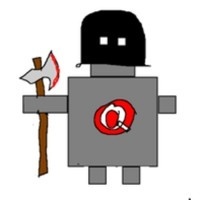The analyses given by Stephen McInerney and Miguel Paraz are… not implausible. But let me take self-interest as a Quora critic out of the equation, and give a facts and figures answer, using the exemplary Laura Hale’s answer to Who is the most followed/viewed/prolific Quoran that has never been awarded Top Writer? as source data. (She is dearly missed.) Answer written in June 2016, and I suspect the source data is rather more dated than that.
Let me also ignore all the celebrities in her answer who didn’t make TW, because when you *do* award Top Writer to celebrities, you get Tim Kaine and Hillary Clinton, and that was widely lambasted as seven different shades of dumb.
From Laura’s lists: not celebrities (defined as, don’t have a Verified User tick), not TWs in 2016 or 2017 so far:
(It gave me a lot of satisfaction to redact out all those Silicon Valley celebs with 20 answers and 50k followers that I’d never heard of.)
Of Laura’s list of 114 writers with 10k followers who were not top writers, 19 were not Verified User ticked: that means 95 of the 114 were celebrities. I think we can agree that we don’t need another 95 top writers with the level of contribution that Hillary Clinton and Tim Kaine have made to the site.
A few more of them look to me to be celebrities, so I am taking those who don’t have at least 100 answers out of consideration:
One more has become a Top Writer in 2017:
Of the remaining users, again excluding celebrities: asterisk is for those viewed more than 10M times as of Laura’s answer. Vo Nghi Nguyen (not in the list below) is the only non-top writer who had written more than 2500 questions (he has half of that now, and he has made Top Question Writer once the award was devised). 1000 answers at the time of Laura’s answer: daggered. Writing in more than 5 topics: hash.
(Users who have refused the Top Writer award: §)
So. This list features people who are prolific and popular.
What do you notice in this list of 13 overlooked Quorans?
Here’s a fairly obvious thing to notice:
Two of the 13 are NOT Indian: Becky Lee (a celebrity blogger, from what I can tell), and Rory Young.
The Indian Quora is a more youthful, chatty place than the American Quora, we know; could it be that the 11 Indian Quorans are known to write “fluffy” content, which Quora does not prioritise? Let me cull those users who have Life and Living, Life Advice, and Dating and Relationships among their top 5 topics:
Ouch. I wish that didn’t cut out 8 of the 11 Indians. There are plenty of TWs who post in those areas, but we do know Quora looks at that component of the site askance.
Let me do better. Omit writers whose top 5 topics are restricted to: Life and Living, Life Advice, Dating and Relationships, India, Quora, Philosophy of Everyday Life, Psychology of Everyday Life, Social Advice, Human Behaviour, Friendship, Career Advice, Survey Question, Self-Improvement, Jobs and Careers (and I’m including Becky Lee, who has no topics at all):
- §Rory Young (Animals, Wildlife, Elephants, Africa, Nature)
- Aditi Saini (Indian Engineering Services, Indian Railways, Union Public Servicce Commission (India))
- §Bhuvi Jain (Politics of India)
- Dhakshitha Rao (Medicine and Healthcare)
- Ankur Warikoo (nearbuy, Groupon, E-Commerce, Startups, Indian School of Business)
- Harsh Snehanshu (Startup Founders and Entrepreneurs, Entrepreneurship, Visiting and Travel, Young India Fellowship Programme)
- Karan Bansal (Facebook, Programming languages, Computer Security, Linux)
- Deepak Shukla (Google (company))
4 of the 11 Indians still cut out, and I’m looking with some concern at whether Politics of India should keep Bhuvi Jain in.
I don’t know much about these posters, so I’ll have to be enlightened as to what other commonalities I am missing. The omission of Rory Young is somewhat surprising, and Ankur Warikoo actually hosted a question session last year. Snehansu seems to be the kind of enterpreneur you’d think Quora would jump at.
Bear in mind that the numbers are at least 9 months old, and Laura’s list was not exhaustive; I’m pretty sure there are writers with 10k followers 9 months ago who’ve never made TW that she’s missed. There’s plenty more now; Habib Fanny and Jordan Yates for example, who don’t match the patterns shown in the list above. Still, this list tells me something.
Common characteristics of very popular writers? Being a Quora critic is not, I believe, among them: that’s a characteristic of some moderately popular writers. I’m not seeing any Scott Welch’s or Stephen McInerney’s or Nick Nicholas’s in the list. “Single (Indian) Girl on the Internet”, which Stephen points out, is a real thing, but I don’t think it explains most of the omissions in this list either.
Common characteristics of very popular writers who have not made TW:
- Writing on populist rather than specialist topics.
- Indian.
EDIT: The omission of Rory is a puzzler, given the list, and Rory has offered an explanation: he asked to be removed from the list of Top Writers. Ditto Bhuvi. They are now marked with a section sign §.







